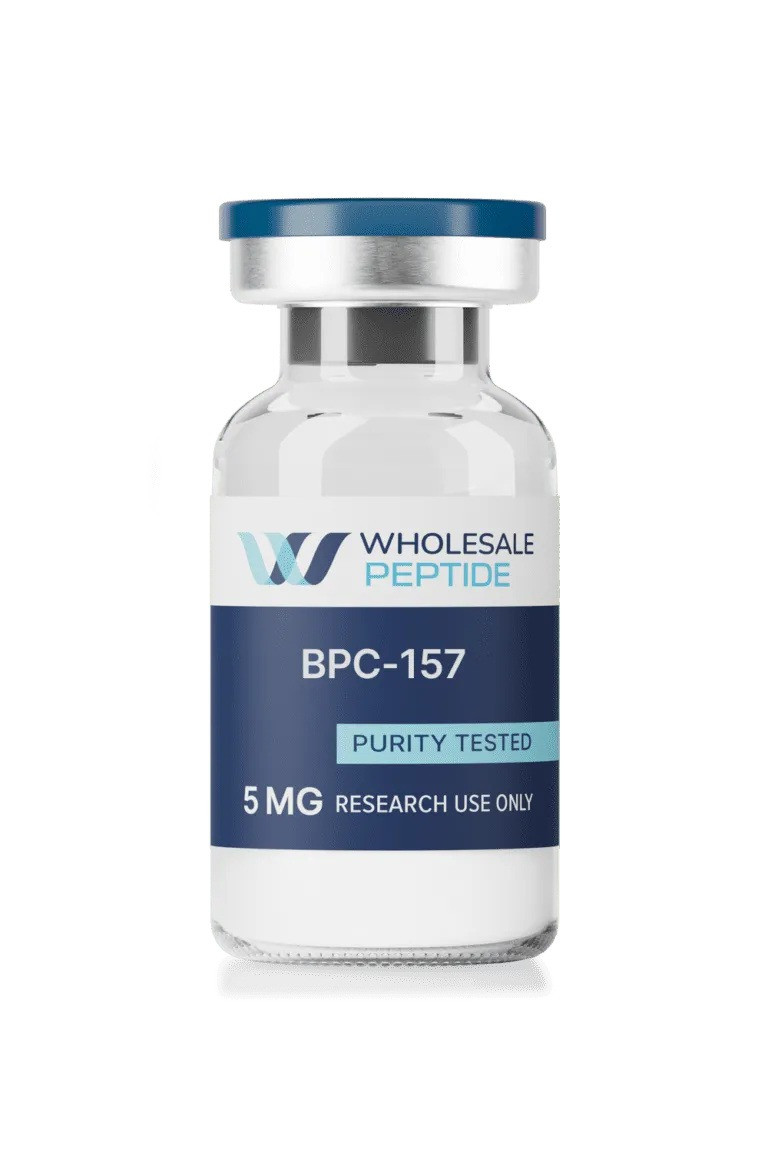By: Press Services
November 14, 2025
Quality Control in Peptide Research
Ensuring Quality in Research Peptides
Brooksville, United States - November 14, 2025 / Wholesale Peptide /
Research peptides are specific sequences of amino acids that serve as molecular instruments for examining signaling pathways, receptor interactions, and various biological mechanisms in both in vitro and in vivo environments. They function as ligands, substrates, or modulators, enabling researchers to detect particular biological effects with molecular accuracy. To achieve reproducible and dependable results, it is crucial to ensure high purity, thorough sequence documentation, and lot-specific quality control. Any impurities or incomplete sequences can lead to misleading data, making verification before use essential.
Common Classes of Research PeptidesResearch peptides can be categorized based on their intended experimental applications. Signaling peptides serve as receptor agonists or antagonists, providing insights into the activation of cellular pathways. Regenerative peptides are utilized in models of tissue repair and wound healing, aiding in the investigation of collagen deposition and cellular migration. Metal-binding peptides, including copper complexes, are employed to influence biomarkers or trace elements in biological assays. Peptides related to growth hormones are frequently used in studies of endocrine systems to investigate hormone axis dynamics, while other modulators, such as melanocortins, find applications in metabolic, pigmentation, or behavioral research. The selection of the right peptide must take into account the experimental model, the biological outcome, and any necessary chemical modifications.
Quality Verification Before UseThe process of ensuring peptide identity and purity starts with a review of analytical data. High-performance liquid chromatography (HPLC) is utilized to quantify chromatographic purity by separating peptide-related species. A single, dominant peak indicates that the primary sequence is predominant, whereas secondary peaks may indicate truncated or modified variants. Mass spectrometry (MS) provides additional evidence by confirming the molecular mass of the peptide along with its expected adducts. The combination of HPLC and MS enhances confidence in the peptide's identity and quality. Researchers should also obtain a certificate of analysis (COA), which includes lot-specific HPLC and MS data, the declared purity percentage, and recommended storage conditions. When available, high-resolution LC-MS (LC-HRMS) offers further verification by confirming amino acid composition, sequence, and impurity content in a single run.
Procurement ConsiderationsPeptides can be sourced either as catalog items or through custom synthesis. Catalog peptides are pre-manufactured sequences available in standard purities and quantities, typically offering quick turnaround and predictable costs for common sequences. Custom synthesis is suitable when the required sequence is new, when non-standard modifications such as labeling or PEGylation are needed, or when exceptionally high purity is critical for sensitive assays. Custom synthesis allows for the specification of synthesis and purification strategies, which can minimize truncation and side-products, leading to higher effective purity. However, longer lead times and increased costs are associated with custom synthesis, and researchers must ensure that detailed COAs and impurity profiles accompany the order to confirm quality.
Supplier EvaluationChoosing a trustworthy supplier necessitates a thorough assessment of documentation, manufacturing practices, and traceability. Researchers should request lot-specific COAs that include HPLC and MS data, along with MSDS for safety and handling. Clear storage instructions, compliance with cGMP or ISO standards, and responsive technical support are key indicators of supplier reliability. Suppliers based in the USA can provide quicker shipping, more accessible technical support, and easier compliance with audit requirements, which can help synchronize experimental timelines with institutional procurement policies.
Handling and StorageProper handling and storage of peptides are vital for maintaining their integrity and ensuring reproducibility. Lyophilized peptides should be stored at -20°C with desiccant and shielded from light. After reconstitution, peptides should be aliquoted into single-use vials to prevent repeated freeze-thaw cycles, and a comprehensive log should be maintained to track lot numbers, solvent used, and aliquot dates. Adhering to MSDS safety guidelines, including the use of personal protective equipment, is crucial for ensuring laboratory safety.
Online Procurement WorkflowWhen purchasing peptides online, researchers should confirm declared purity, COA availability, and storage instructions prior to placing an order. Lot-specific HPLC and MS data should be requested if not available on the product page. Institutional purchase orders enhance traceability, and small test quantities can be obtained to validate the peptide in sensitive assays before committing to larger purchases. Keeping documentation of COAs, MSDS, and storage conditions is essential for ensuring experimental reproducibility and minimizing the risk of utilizing inadequately characterized reagents.
Practical Research TakeawaysHigh-purity peptides, validated through HPLC and MS, are fundamental to conducting reproducible experiments. Catalog peptides offer convenience and speed, while custom synthesis caters to specialized applications requiring high purity or unique modifications. Proper storage, aliquoting, and documentation are crucial for reducing degradation and experimental variability. Selecting transparent, responsive suppliers and adhering to strict quality control measures ensures that peptides can be reliably utilized as tools for investigating complex biological processes.


Contact Information:
Wholesale Peptide
1204 S Broad St #336
Brooksville, FL 34601
United States
Julie Carter
+1888-348-8577
https://wholesalepeptide.com
This contant was orignally distributed by Press Services. Blockchain Registration, Verification & Enhancement provided by NewsRamp™. The source URL for this press release is Quality Control in Peptide Research.
